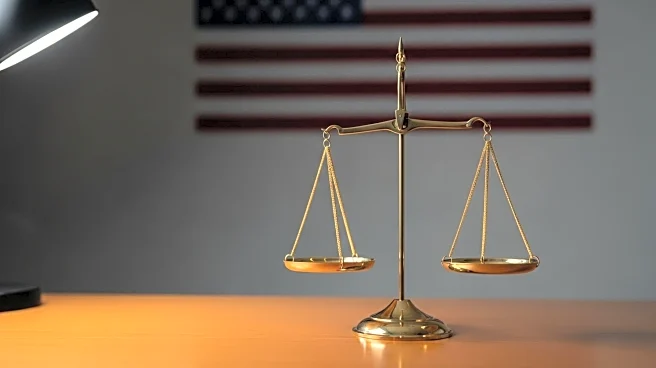What's Happening?
President Trump has signed an executive order aimed at ending cashless bail practices across the United States. The order threatens to revoke federal funding from jurisdictions that continue to implement cashless bail, a system where suspects are released without posting bail. This decision follows a study conducted by Yolo County, California, which reported a 169% increase in recidivism among individuals released on cashless bail compared to those who posted bail. The executive order is part of Trump's broader strategy to address crime and public safety concerns, particularly in the nation's capital, Washington D.C.
Why It's Important?
The executive order has significant implications for public safety and criminal justice reform. Critics of cashless bail argue that it allows potentially dangerous individuals to return to the streets, increasing crime rates and endangering communities. By threatening to cut federal funding, the order pressures jurisdictions to reconsider their bail policies. This move could lead to a shift in how pretrial releases are handled nationwide, impacting the legal system and potentially increasing the number of individuals held in custody before trial. The decision also highlights the ongoing debate over balancing public safety with criminal justice reform efforts.
What's Next?
The U.S. Attorney General has been given 30 days to compile a list of jurisdictions that have eliminated cash bail for crimes posing a threat to public safety. Federal agencies are tasked with identifying funds that could be suspended or terminated for these jurisdictions. The order may face legal challenges from cities and states that view it as federal overreach. Additionally, the impact on crime rates and public safety will be closely monitored, as jurisdictions decide whether to comply with the order or risk losing federal funding.









